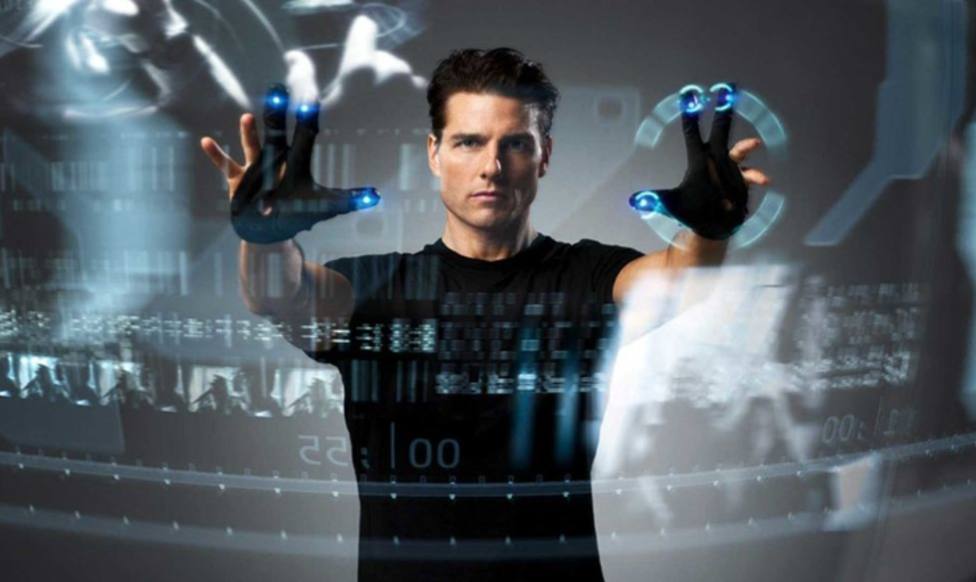We’ve all felt it: the uncanny experience of watching a movie or series and thinking, “This feels eerily familiar.” Or even stranger, watching a film from the past and recognizing technologies or societal developments that have since become reality. It’s as if our entertainment, under the guise of fiction, is silently whispering the potential futures to us.
In a world constantly shaped by rapid technological advances, it’s no surprise that our screen stories often reflect the innovations and concerns of our age. But is there a deeper connection? Are movies and series merely speculative, or do they offer us a glimpse of the world to come?
Consider the popular series The Mandalorian. In a galaxy far, far away, we witness a society reacting to the absence of technology they’ve grown accustomed to. The storyline mirrors a universal human truth: unfamiliarity often breeds rejection. But as we adapt, as we see the benefits, we not only accept but also grow reliant on these new paradigms. The question is, once we’re accustomed, can we ever truly go back?
Think about the first time you held a smartphone. The apprehension, perhaps? Fast forward to today, and our entire world, from banking to social interactions, revolves around this small device. It’s become an extension of us. The thought of living without it is not only daunting but almost inconceivable. This evolution of acceptance and dependency isn’t unique to technology; it echoes in societal shifts, fashion trends, and cultural revolutions. But with technology, the stakes seem higher. We are not only integrating tools into our lives; they are shaping our realities.
Our screen stories, whether through intention or intuition, seem to tap into these very currents of evolution. From the communicators in Star Trek that foretold the era of mobile phones to the virtual realms of The Matrix, hinting at the potentials and pitfalls of VR and AR technology. There seems to be a dance between art and life, with each taking turns leading.
This begs the question: are these movies and series prophetic or preparatory? Are they mere reflections of creative minds, or are they helping condition society for impending shifts, technological or otherwise? It’s a question of the chicken or the egg.
Maybe it’s a bit of both. Filmmakers, writers, and artists have always been at the forefront of societal change, pushing boundaries and challenging norms. Their works are informed by their observations, dreams, and apprehensions. In putting these on screen, they offer society a chance to explore, debate, and either embrace or reject these potential futures before they manifest.
The idea that movies and series anticipate, or even prepare society for future developments is not new. It’s rooted in the concept of science fiction as both a mirror and a crystal ball: reflecting our current anxieties and hopes, while also projecting visions of the future. Here are a few ways in which this phenomenon has manifested:
1. Predicting Technology:
– Star Trek’s Communicator → Modern-day flip phones.
– Minority Report’s Gesture-Based Interfaces → Today’s gesture recognition technology.
– Star Wars’ Holograms → Current development of holographic projection tech.
2.Societal Changes and Social Commentary:
– Fahrenheit 451 showcased a society obsessed with screens and superficial entertainment, reminiscent of today’s smartphone-addicted world.
– Black Mirror offers several episodes that resonate with real-life implications of technology, such as “Nosedive” and society’s obsession with social media ratings or “The Entire History of You” and the consequences of having access to every memory.
3. Environmental Concerns:
– Films like Wall-E and The Day After Tomorrow underscore concerns about environmental neglect and climate change.
4. Bioethical Dilemmas:
– Gattaca deals with the consequences of genetic engineering and the resulting social stratification.
– Orphan Black highlights the moral issues surrounding human cloning.
5. Societal Structures:
– The Hunger Games and Divergent series explore dystopian societies structured around extreme inequality and control, reflecting concerns about increasing societal divides.
6. Mental and Emotional Exploration:
– Eternal Sunshine of the Spotless Mind delves into memory erasure, evoking thoughts about dealing with trauma and pain.
– Inception and The Matrix challenge our perceptions of reality.
In series The Mandalorian, technology (or the removal of it) can indeed be a metaphor for dependency, comfort, and eventual disruption. As we grow more dependent on technology, its sudden absence can leave us disoriented, highlighting our vulnerability.
Movies and series often either consciously or unconsciously reflect the ethos of their time. Filmmakers project their views, worries, hopes, and speculations about the future, many of which are rooted in current trends or observations. While not every imagined scenario will come to fruition, these stories provide a fascinating lens through which we can explore potential futures and the paths we might take (or avoid) to get there.
While the line between prediction and preparation is blurry, one thing remains clear: our entertainment, consciously or unconsciously, plays a vital role in shaping our understanding of the world and what might lie ahead. They remind us of the resilience and adaptability of the human spirit, and the endless possibilities (both promising and foreboding) the future holds.
So, the next time you watch a movie or series, ask yourself: Is this a mere tale, or is it a window into what’s to come? Only time will truly tell. But one thing is certain — our screens have more to say about our future than we might initially perceive.


